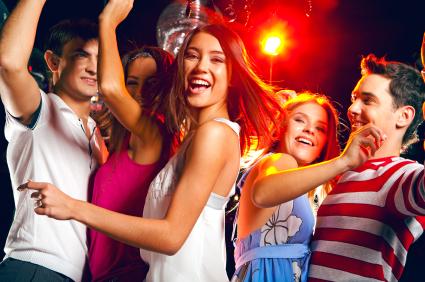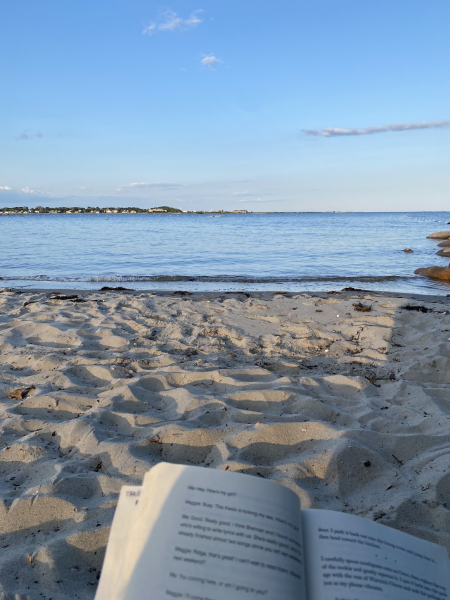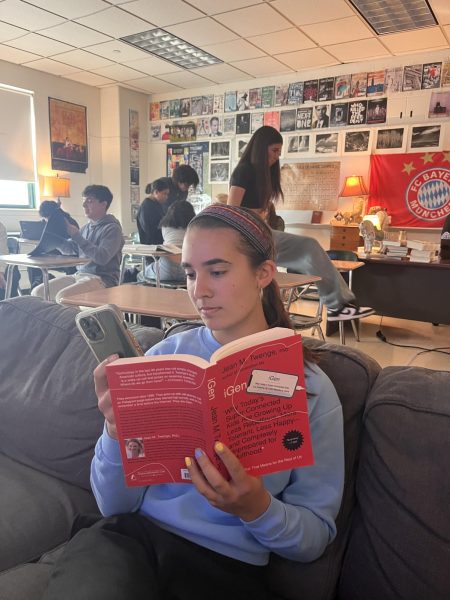Evolution of the high school party

Armed with a cold two-liter bottle of Sprite, plundered from the host’s mixed drink station, and a bowl of sour cream and onion Ruffles, the weekend warrior pushed into the crowd, bodying his way forward, keen on observing the scene that was unfolding before him. The air was thick with a veritable smorgasbord of aromas: the sickly-sweet smell of marijuana; the scent of spilt beer; and the musky odor that only few of us could describe.
Through the haze of cannabis, the kitchen had now become the dance hall for the huge house and two girls could be seen twerking on the counter-top, enveloped by a sea of teenage boys, who, with phones out, hoped to record the spectacle before them.
This was a party. This was senior year.
Was it not a mere four years ago that the warrior had found himself a lowly page, content to let a case of Mountain Dew and the Wii surrounded by friends count as a “party” on a Saturday night? What was the key turning point that catalyzed the metamorphosis from virgin freshman to corrupt senior that so many before him had undergone?
Was it the drugs? The girls? The need to impress others? What marked the Evolution of the High School Party?
The first stop was Land of the Freshmen, a hopeful place marked by the white innocence. One of these hopeful innocents was freshman Abigail Richard, who said, “Nothing really happens with freshmen.”
Some freshmen will never end up getting into the party scene, even when they become seniors. “Raging is irresponsible and foolish whatever age you are,” said senior Mikayla Corriea. “While I and many others don’t party for personal or moral reasons, the bottom line is that drinking is illegal if you are under 21.”
The warrior trekked onwards to the realm of the sophomores, hoping to find clarification. Here, there was partying, but many of its inhabitants had not yet learned how to manage themselves in the setting; they were still but mere wannabe ragers.
In his journeys, the warrior encountered an anonymous senior, who regaled him with the tale of an abortive “rager” he attended as a sophomore. “As sophomores we decided that it was time to begin the partying phase of high school,” he said.
“Upon entrance we found the people already there very intoxicated at only 9:00. Many kids were throwing up and acting foolish,” he said.
“Needless to say the party got out of hand way too quickly [so] people panicked and went home and it ended.” This was his first “rager” experience, and many other sophomores expressed similar stories.
“I had three older sisters so I kind of had an idea of what parties were like, but I thought there’d be stuff like dancing, but it’s more of doing silly things,” said sophomore Paris DeMello. “[The scene] is a little crazy.”
DeMello also explained that parties can never consist of just a few friends. It’s either everyone shows up or no one.
Though senior- and junior-hosted parties seemed to have just as much drug and alcohol use as their sophomore counterparts, they were more in control. In fact it was only once sophomores and more people got involved that parties made the dangerous transition to rager. Senior Simone Gafitanu said, “I never hear about [senior] parties getting too wild except when it involves more grades.”
In general these “more grades” were sophomores. Still, it was the small group of sophomores who attend who go wildest, drinking and smoking the most.
They were trying to emulate the upperclassmen by outdrinking and outsmoking them, and there were attempts at copycatting the seniors – who had actual experience partying.
This is not unique to this sophomore class because this happens with every sophomore class. It was a repeating cycle that has been present in the sophomore class for years. Last year’s sophomores did it and so did the ones from five years prior.
“High school is years of experimenting and my thoughts are that at one point, everyone is going to do it, and there’s no stopping it,” said DeMello. “Just be as safe as you can.”
In many cases, however, upperclassmen decide to leave the drugs behind. One prime example was Corriea, who said, “I am happy with myself and have a lot of respect for myself and the choices I’ve made so far.”
Although the partygoers evolve and the sophomores gain more experience, many upperclassmen and lowerclassmen are set without partying at all.
“The most attractive thing a person can do is have respect for themselves and for others, and I think a lot of the time raging shows you don’t respect either,” Corriea said.
Still, the cycle has, and will, continue to repeat itself. The freshmen will stay naïve, and the sophomores will lose themselves, while the vast crowd of juniors and seniors will sit back and ask, “Was I like that?”
The young will try to impress the old, until they are the old themselves, and thus goes the Evolution of the High School Party.
Adviser’s Note: Under MA law, any parent who knowingly supplies or allows underage drinking at a home party may face civil and criminal liabilities. For more details, visit http://www.mass.gov/essexda/prevention-and-intervention/juvenile-prevention/social-host-liability.html.







Nicole Sheahan • Feb 13, 2014 at 6:33 pm
I entered this article with an open mind — Mr. Pereira often has interesting views — and I wholeheartedly respect 1st amendment rights, which school newspapers fight daily to protect. But that is exactly why I expected an article like this — one that explores a controversial subject while casting a negative light on our student body — to have a strong POINT. But what point does the warrior make? This party scene — minus smartphones — is the same party scene that existed long before its current revelers were born — it’s not much of an evolution.
The topic of the party scene has much potential — smart decisions in stupid situations; the buddy system: it’s not just for field trips; when you don’t got milk, get a DD (designated driver) — but to just show the reading audience a party, and to have the seemingly strongest point be that sophomores are … well, sophomoric… it’s just disappointing. If you’re going to walk us through a “haze of cannabis,” please lead us somewhere. [English teacher note: “Some freshmen will never end up getting into the party scene, even when they become seniors” — they’re no longer freshmen when they’re seniors — instead, maybe –> some STUDENTS will never get into the party scene even as seniors.]
I look forward to the Evolution of a Writer — because I think there’s a strong one caught in the haze of this article.